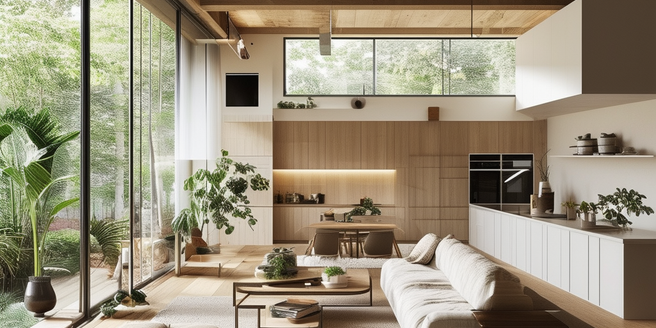Advantages Of Modular Housing For Rent

Cost-Effectiveness of Modular Housing
Modular housing offers significant cost advantages compared to traditional construction methods. The manufacturing process benefits from economies of scale, reducing material costs. Additionally, the controlled factory environment minimizes waste and mitigates the risk of unexpected expenses. Labor costs are also lower due to faster production times and reduced need for specialized on-site contractors. Furthermore, modular housing projects often have shorter completion times, allowing for quicker occupancy. Advances in technology have further streamlined the production process, enhancing both speed and quality. These savings make modular housing an attractive option for renters looking to maximize their budget while enjoying modern, high-quality living spaces.
Speedy Construction Timeline
One of the standout benefits of modular housing is its speedy construction timeline. Unlike traditional building methods, which can be hampered by weather delays and other on-site complications, modular homes are built in a controlled factory environment. This results in a significantly reduced construction timeline, often cutting the build time by half. Moreover, the precision of factory-based production often leads to fewer defects and higher durability. Additionally, this controlled setting ensures consistent quality and minimal waste. Quick assembly on-site further expedites the completion process, making modular housing a time-efficient solution for both developers and renters seeking prompt relocation options.
Sustainability and Eco-Friendliness
Modular housing is synonymous with sustainability and eco-friendliness. The construction process generates far less waste compared to traditional methods, as precise measurements and bulk material ordering minimize excess. Additionally, many modular homes are built using sustainable and recycled materials. These materials often include reclaimed wood, recycled steel, and environmentally friendly insulation. This not only conserves natural resources but also promotes a circular economy. Energy-efficient designs and systems are also commonly integrated, reducing the ecological footprint. For eco-conscious renters, modular housing provides an opportunity to live in a space that aligns with their environmental values.
Versatility and Customization Options
The versatility and customization options offered by modular housing are considerable. These homes are not confined to a one-size-fits-all approach; instead, they can be tailored to meet specific needs and preferences. From selecting floor plans and finishes to incorporating unique design features, renters can enjoy a home that reflects their lifestyle. This flexibility allows homeowners to create an ideal living environment without compromising on their vision. Additionally, modular homes are often more environmentally friendly due to their efficient use of materials and construction methods. The modular construction process also allows for easy future modifications, ensuring the living space can adapt as needs change over time.
Enhanced Quality Control Measures
Enhanced quality control measures are a hallmark of modular housing. Each module is constructed in a factory setting where standards and specifications are rigorously maintained. This controlled environment reduces the likelihood of construction errors and ensures consistent quality across all units. Additionally, technological advancements have further streamlined the construction process, enhancing efficiency and precision. Comprehensive inspections occur at multiple stages, from initial construction to final assembly, guaranteeing that each home meets high standards. As a result, modular homes are often more reliable and durable. For renters, this translates to greater peace of mind and a higher standard of living.
Lower Maintenance and Repair Costs
Lower maintenance and repair costs are significant advantages of modular housing. Because these homes are built in a factory-controlled environment, they often exhibit superior construction quality, leading to fewer defects and repairs over time. The use of durable materials and advanced construction techniques ensures a consistent level of precision and quality. Additionally, modular homes are typically constructed more quickly than traditional homes, which can further reduce labor costs. The use of durable materials and advanced construction techniques also extends the longevity of modular homes. As a result, renters can enjoy reduced upkeep expenses and fewer disruptions, making modular housing a cost-effective and convenient option in the long term.